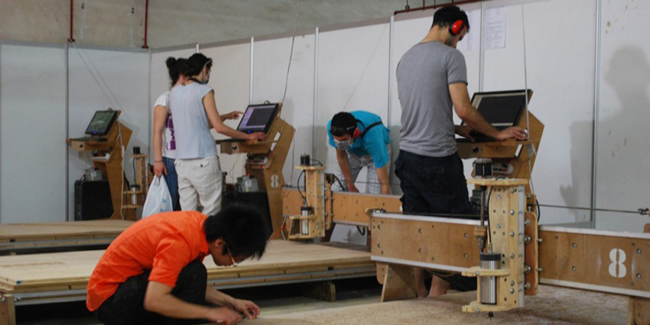
ETH CAAD and NCTU IAR have held a joint workshop “Teahouse 2.0” in the spring of 2012, which explore a new threshold of computational design and digital fabrication in the realm of education. Three teams from NCTU IAR and ETH CAAD designed and built 3 experimental “Teahouses”. Most of the group of MAS CAAD 1112 participated in this intense 2-week workshop in Taiwan.
Taiwanese tea house plays a role as social condenser, providing space not for a sacred but a rather everyday ritual. For this reason, I-TEA-RATION aims to be a room of the “in between”, not only open and quotidian, but also a place of the mind. This “in between” character is declined through a range of nuances sliding from transparency to opacity, and questioning the paradox of dematerialisation through material itself. How to reach a perception similar to the one seen in Asian landscape paintings, where sharp rocky mountains fade out into mist?
In an attempt for a quiet and contemplative design, an initial pure cube defines the overall volume. After being sculpted and carved out, the “in-between” space appears, connected not only to horizontal flows but also revealing glimpses of the sky. The final volume is sliced into a range of closely distanced parallel frames, introducing depth of field and kinetic effects.
Each frame goes then through an iterative subdivision process. Areas of opacity and transparency are pointed out by the introduction of “attractors”, which foster further subdivision generations until reaching a critical minimal size, defined by the accuracy and execution limits of the tools provided. The resulting cut out pattern appears as a fine lattice structure of opaque frame lines, playing on different depth planes and progressively complexifying when going further inside the volume. Nor sharp nor blurred, here we have a tea house that is “in between” space, fading out between outside and inside, transparency and opacity.




Photos of a built house and exhibition: May 25 – July 01, 2012, MOCA Taipei.









